33 F. high in the Twin Cities Saturday, before the arctic front arrived.
24 F. average high on January 3.
29 F. high on January 3, 2014.
January 3, 1981: Air cold enough to freeze a mercury thermometer pours into Minnesota. Tower hits 45 below zero.
January 3, 1971: Snowstorm over upper midwest. Winona gets over 14 inches.
Cold Enough
When
Minnesotans ask if it's cold enough for me I tell them the truth: I
prefer absolute zero, where all molecular activity ceases. Pluto-like
cold is refreshing, but a polar punch in January is the next best thing.
Which begs the metaphysical question: can you feel any colder than
numb?
Welcome to what may just be the coldest week of winter,
coming about 1 week ahead of schedule. Subzero air surges south in 3
separate waves: today, Tuesday, again Friday - before upper level winds
swing around to the west and we thaw out early next week. That means 7
nights in a row below zero. Daytime highs today and Wednesday probably
won't rise above zero with a wind chill dipping to 30 below at times.
If you're properly dressed (no exposed skin rule in place) and physically active the risk of cold weather ailments is low.
But
a little paranoia is warranted. Seniors and infants are most
susceptible to frostbite and hypothermia, an insidious drop in body
temperature than can be fatal. The arrival of the Arctic Express sets
off a couple inches of snow this morning; a few more inches may fall
Monday night.
One advantage of a subzero week? You'll never take freezing for granted again.
Flushing The Canadian Commode.
O.K. I'm all out of metaphors. Maybe it's brain-freeze but it's
interesting (at least to me) that cold air, and warm air for that
matter, always advances in waves, rather than one shot. The first bitter
breaker arrives today on howling northwest winds, the second smack of
Canadian Pain arrives Tuesday into Wednesday; the last weak and rather
anticlimactic push of Manitoba Madness limps in Friday before we thaw
out within 1 week or so. Source:
Climate Reanalyzer.
Coldest Wind Chill: Wednesday Morning?
Today won't be a treat with a chill near -25F much of the day. A second
surge of Nanook air arrives Tuesday and Wednesday, and the combination
of air temperature and wind speed may reach a nadir Wednesday morning;
as cold as -35F in the Twin Cities, possibly -45F for portions of
central and northern Minnesota. Cold enough to get your attention.
Credit:
Aeris Weather.
Coldest Week of Winter?
Yeah, I'm probably being overly optimistic putting that forecast
(prayer) into print. Subzero outbreaks are common into early, even
mid-February. But January is still our coldest month of the year, and
temperatures usually bottom out around January 15-16. I see a thaw by
the second and third week of January; beyond that the crystal ball gets
murky. Will we see another week with 72-96 hours below zero? Possibly,
but I doubt it. A few inches of snow may fall Monday night as the second
wave of bitter air arrives; European guidance hinting at a thaw by
early next week.
Reason To Keep On Going.
After a week ranging from painful to numb I see a light at the end of
our Siberian tunnel. GFS guidance shows 20s and 30s by mid-January as
milder Pacific air penetrates farther inland. I'm always a little
amazing (and horrified) how good 30F feels after being subzero for the
better part of a week.
2014 Temperature Departure From Average: January thru November.
Here is why it's probably a bad idea looking out your window and making
global assumptions. "Uh, the planet can't be warming up Paul because
it's cold outside!" No, that never gets old. 2014 will almost certainly
be the warmest year on record according to NOAA data, with a 60-70%
probability it will be the warmest year on record according to NASA GISS
numbers. The chilliest weather last year? Directly above our heads,
Upper Midwest and Great Lakes. Otherwise the vast majority of the
world's land masses and oceans experienced record warmth. Source:
NOAA NCDC.
December Numbers. Thanks to Greg Spoden, Minnesota State Climatologist at the DNR for passing on a
detailed recap of weather across the great state of Minnesota last month; here's an excerpt:
- December
precipitation totals were close to historical averages across large
portions of Minnesota. In many locales, a significant fraction of the
monthly precipitation came in the form of mid-December rain. However,
northwest and north central counties missed out on the bulk of these
rainfall events and monthly precipitation totals in those areas were
about one-half inch short of historical averages.
- Snow
depths are less than four inches in most Minnesota communities. Little
or no snow cover is on the ground across large sections the state. Snow
depths are well below median for the northern two-thirds of Minnesota.
- The
U. S. Drought Monitor indicates that Abnormally Dry conditions exist
over large sections of Minnesota, the result of a dry late summer and
autumn.
- Average monthly temperatures for December in
Minnesota were above historical averages, ranging from five to seven
degrees above normal. Warm and very humid conditions in mid-December led
to a number record-setting high overnight temperatures and high dew
point temperature readings...."
*
2014: 6th Coolest Year on Record for Iowa. Details from
The Des Moines Register.
Alaska's Toasty Temperatures in 2014 Worry Observers. Anchorage didn't dip below 0F once in 2014, which is a bit hard to fathom. Here's a clip of a story at
The Los Angeles Times: "
The
biggest state in America, home to more ocean coastline than all others
combined, has just set another record. This one, however, is nothing to
cheer. For the first time in recorded history, temperatures in Anchorage
did not drop below zero once in an entire calendar year. In comparison,
Alaska's largest city had 14 days below zero in the 2013 calendar year
and 32 days in 2012. The average is 29 days..."
Photo credit above: "
In
this photo taken on Dec. 18, 2014, Terry and Dan Goodwin, from left to
right, cross-country ski as a snow-making machine churns snow at the
city's largest park in Anchorage, Alaska. A spate of weird weather
lingers in Anchorage, which is almost 2 feet behind typical snowfall
totals for December." (AP Photo/Mark Thiessen).
2014
In Computing: Breakthroughs in Artificial Intelligence. I'm already
paranoid that Siri is going to start scheduling meetings and making
calls without me - this story at
MIT Technology Review just fanned the flames: "
The
holy grail of artificial intelligence—creating software that comes
close to mimicking human intelligence—remains far off. But 2014 saw
major strides in machine learning software that can gain abilities from
experience. Companies in sectors from biotech to computing turned to
these new techniques to solve tough problems or develop new products.
The most striking research results in AI came from the field of deep
learning, which involves using crude simulated neurons to process data..."
2015 Will Be The Year of SpaceX's Reusable Rocket.
Quartz has the details of a fairly radical, cost-saving idea; here's an excerpt: "...
SpaceX’s Jan. 6 launch will send a remotely piloted space capsule to the ISS with food, experiments, and two tiny, Earth-observing satellites
called cubesats. But the arguably bigger news is that the company, led
by CEO and chief rocket designer Elon Musk, will attempt to fly the
rocket that carries it into orbit back to earth and land it on a
floating platform akin to an oil rig...."
Image credit above: SpaceX.
That's It, We Can Never Trust Bankers Again.
Disclaimer: I like my bankers here in Minnesota, for the record. Does
this apply to all bankers or just greedy New York City mega-bankers? Not
sure, but here's a snippet of a story at
Quartz that caused me to move my cash into a shoebox under my pillow: "..
.In an experiment recently published in the scientific journal Nature,
bankers distinguished themselves by their dishonesty. Asked to report
the results of unsupervised coin flips in return for financial rewards,
bankers bent the truth more than any other group. Crucially, this was
only after researchers asked the subjects questions about what they did
for a living. Thus, bankers who are reminded that they work in banking
are more likely to cheat than people in other lines of business...."
TODAY: 1-3" snow early. Bitter winds. NW 20. Wind chill: -25. High: -3
SUNDAY NIGHT: Clear and frigid. Low: -13
MONDAY: Clouds increase, another 1-3" snow at night from the next clipper. High: 3
TUESDAY: Icy travel. Bitter winds. WC: -25. Wake-up: 2. High: 5, then falling below zero again.
WEDNESDAY: Coldest day of winter? Sunny, subzero all day. WC: -35. Wake-up: -15. High: -4
THURSDAY: Breezy, not as harsh. Wake-up: -9. High: 14
FRIDAY: Last cold puff this week. Wake-up: -3. High: 5
SATURDAY: Milder, chance of light snow. Wake-up: -2. High: 23
* a welcome thaw is possible Sunday and Monday of next week.
Climate Stories...
It’s 3:23 in the morning, and I’m awake because my great, great, grandchildren won’t let me sleep.
My great, great, grandchildren ask me in dreams
What did you do, while the planet was plundered?
What did you do, when the earth was unraveling?
Surely you did something when the seasons started failing as the mammals, reptiles and birds were all dying?
Did you fill the streets with protest when democracy was stolen?
What did you do once you knew?
2014 Was The Year Of The Melting Ice Sheet. Quartz has a recap of trends as both poles; here's an excerpt: "...
Though scientists have known that the Arctic is warming more than twice as fast as the global average, the south pole is harder to measure.
Well, this just in: Since 1992, an annual average of 83 gigatons (91.5
billion tons) of West Antarctic glacier has dripped into the sea. That’s
the rough equivalent of losing a Mt. Everest’s worth of ice every two years, according to a new study (pdf) by University of California, Irvine, and NASA’s Jet Propulsion Laboratory..."
Image credit above: "Meltdown." (Reuters/Pauline Askin).
Playing Dumb on Climate Change. Here's an excerpt of an Op-Ed from Naomi Oreskes, author of "Merchants of Doubt" at
The New York Times: "...
Years
ago, climate scientists offered an increase of 2 degrees Celsius (or
3.6 degrees Fahrenheit) as the “safe” limit or ceiling for the long-term
warming of the planet. We are now seeing dangerous effects worldwide,
even as we approach a rise of only 1 degree Celsius. The evidence is
mounting that scientists have underpredicted the threat. Perhaps this is
another reason — along with our polarized politics and the effect of
fossil-fuel lobbying — we have underreacted to the reality, now
unfolding before our eyes, of dangerous climate change." (Image: Wanda Brandt).
It's Not The Heat, It's The Stupidity.
Will the collective scientific-IQ in Congress rise in the years ahead?
Don't bet on it. Playing dumb, at least on scientific issues, helps to
get you elected these days. Here's a clip from Environmental Health News: "...The
114th Congress convenes this week. The last time a Congressional
anti-science caucus was this strong may have been during the Scopes
Monkey Trial ninety years ago. But that’s not the worst part of it: The
folks who want to gut government research and deny climate change are
virtually guaranteed perpetual re-election and jobs for life. Let’s get
straight to the moral of this story: Entrenched anti-science isn’t going
away. Not soon, maybe not in our lifetimes. Every one of the most
ardent congressional climate deniers who chose to run won re-election,
mostly by runaway margins, and probably have jobs for as long as they
want them. A landscape of gerrymandered “safe” districts and wide-open
campaign cash spigots make their futures even safer, even as their
behavior helps make our own a little more bleak..."
A Grandfather on Climate Change and the Poem That Led To Activism.
Care2 Healthy Living
has a story of one grandfather coming to terms with the world we are
leaving behind to future generations. Are we doing enough? "...
The end result of my evolution to climate activist is BoomerWarrior,
a website focused on the environment, climate change, energy, water,
global warming and climate reality. More specifically, it’s about…
1. Raising Awareness to the vast challenges we face
2. Coming to Our Senses
3. Creating a Sense of Urgency to galvanize people into positive activism..."
Baked Alaska: Climate Change in the Arctic. The
rate of warming for far northern latitudes far exceeds anything we're
seeing across the USA, with uncertain implications. Climate scientists
point out that we are now in uncharted waters. Here's an excerpt from
The Energy Collective: "...
This
latest report shows that Arctic air temperatures continue to rise at
more than twice the rate of global temperatures, a phenomenon scientists
call “Arctic amplification,” causing a range of impacts. Among them are
increasing air and sea surface temperatures, declining reflectivity (albedo) of Greenland’s ice sheet, diminishing spring snow cover on land and summer ice on the ocean, and the declining health and numbers of some polar bear numbers, including those in the Hudson Bay region.
The Arctic is the climatic canary in a coal mine, impacting not only
Arctic populations and ecosystems, but the global climate system as well..."
New Zealand Glaciers Ebb and Tour Guides Play Catch Up. Here's a clip from a story at
The New York Times: "...
Two
of the glaciers there, Fox and Franz Josef, have advanced several times
since they were first measured more than a century ago, scientific
figures show. But both have retreated farther in the last five years
than they advanced in the preceding 25 years, and scientists predict the
retreat will continue over the long term. “There is no doubt that the
retreat has been caused by climate change,” Brian Anderson, a
glaciologist at Victoria University in the capital of Wellington who
studies both glaciers, said in an email..."
Photo credit above: "
Malcolm
Richards of Fox Guide Glaciers leads tourists on a hike up Fox Glacier
on the West Coast of New Zealand, Oct. 4, 2014. Tourists once came to
this remote town to hike across glaciers, but now helicopters are the
only way to reach many of them - one of the many ways in which climate
change is effecting the global tourism industry." (Guy Frederick/The New York Times).
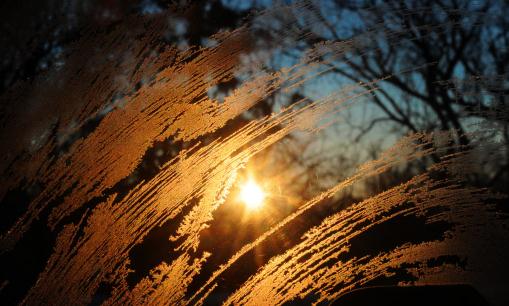
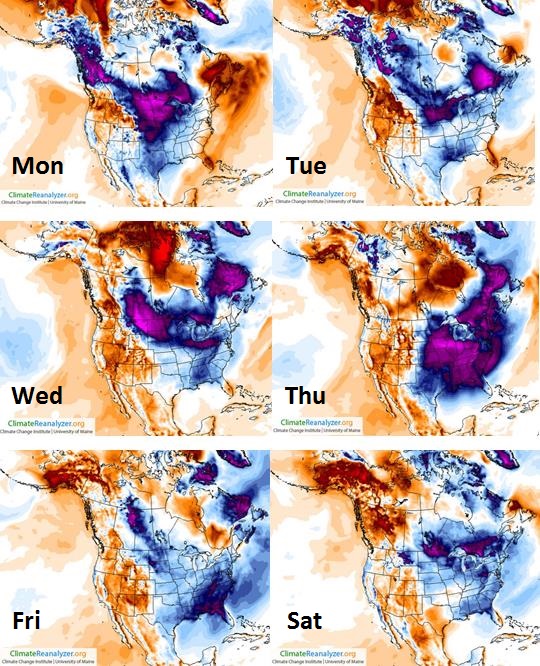

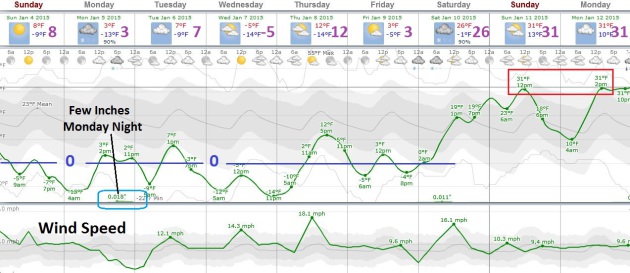
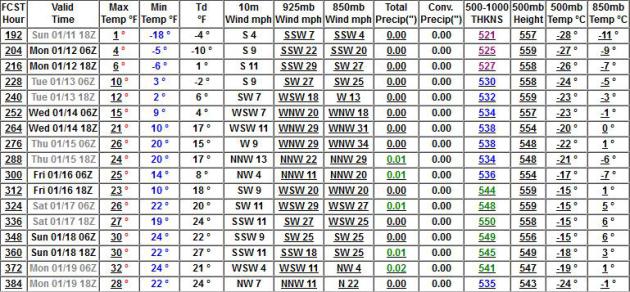
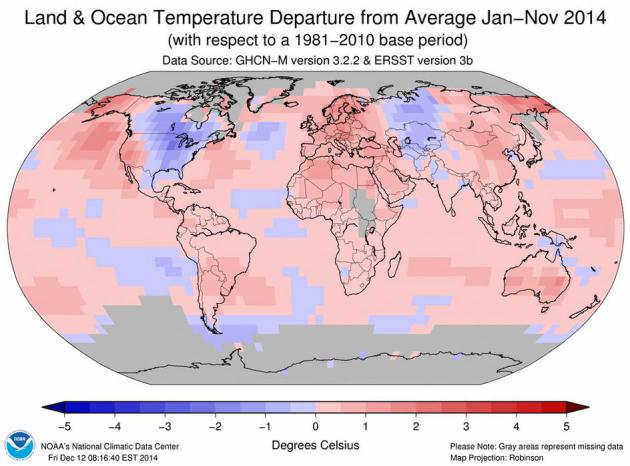
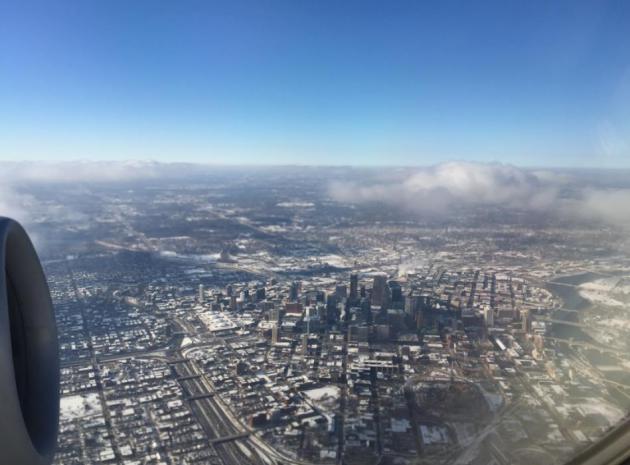
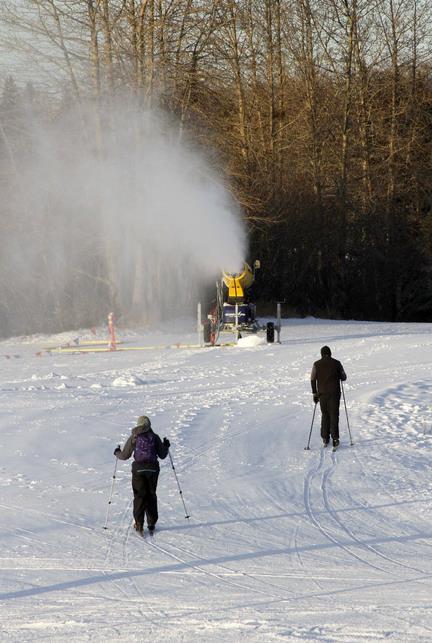

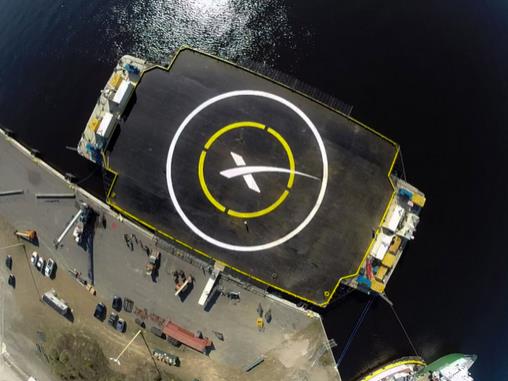


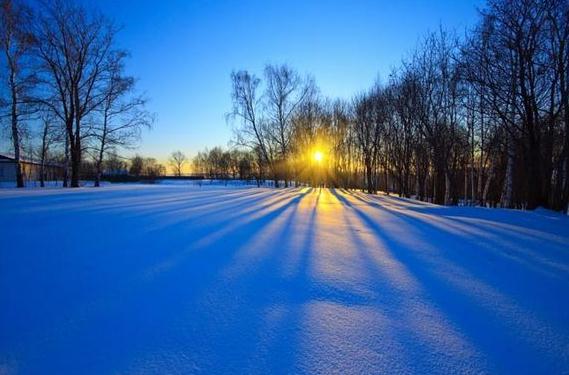
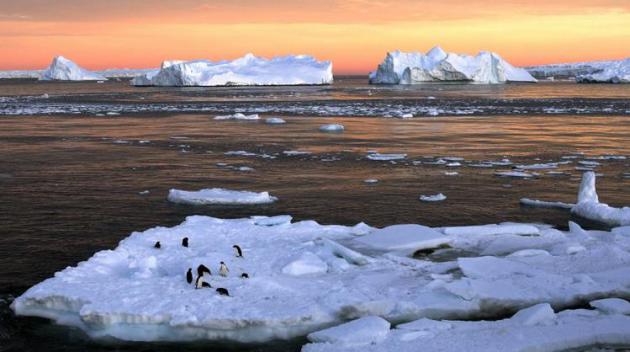
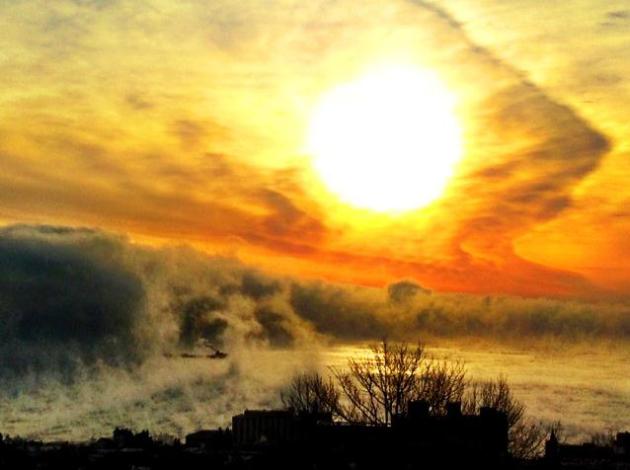
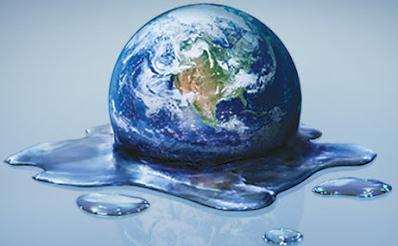

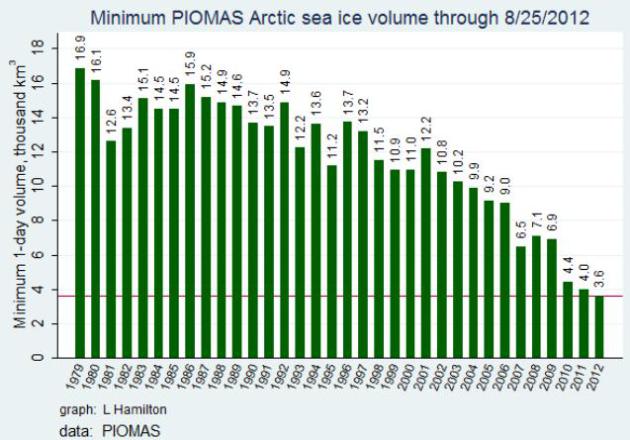
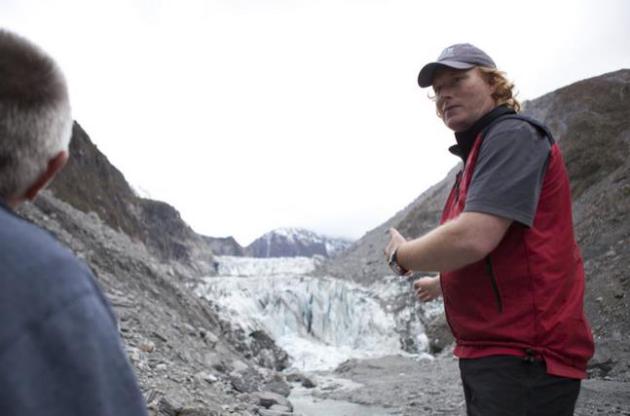
No comments:
Post a Comment